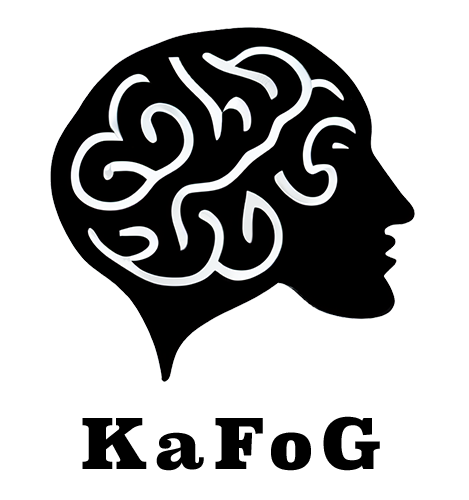Most men will experience health issues at some point in their lives. Statistics tell us that men die sooner than women, and one reason is the lower rate of preventative healthcare measures. Men are less likely to seek medical assistance and often delay seeing a doctor until it’s too late. However, there are certain symptoms that men should never ignore. Recognizing and addressing these warning signs can save lives.
Prostate Health: Learn from King Charles III
In January 2024, Buckingham Palace announced that King Charles III was treated for an enlarged prostate. His benign condition is common among men over 50. Symptoms include difficulty urinating, an inability to empty the bladder, and frequent urination. While not linked to prostate cancer, untreated benign prostate enlargement can lead to recurring UTIs or bladder stones. Men should always get these symptoms checked to rule out more serious issues like prostate cancer.
Chest Pain: A Heartfelt Warning
Heart disease is the leading cause of death for men in many countries. Not all chest pain signals a heart attack, but it should never be ignored. If chest pain is accompanied by shortness of breath or sweating, it could indicate angina or ischemic heart disease, precursors to a potentially deadly heart attack. Always consult a doctor if you experience these symptoms.
Also: I’m A Colorectal Cancer Doctor — Here Are 5 Things I’d Never, Ever Do
Sudden Weight Fluctuations: A Hidden Danger
Weight fluctuations are normal, but sudden, unexplained changes can indicate serious health problems. Losing or gaining more than five pounds without changes in diet or exercise might signal thyroid disorders such as hypothyroidism or hyperthyroidism. It’s crucial to seek medical advice if you notice such changes.
Changes in Stools: A Silent Alarm
Checking stool color and consistency can reveal underlying health issues. Red or black stools might indicate blood, a warning sign of colon cancer. Early detection dramatically improves survival rates. Any changes in your stools should prompt an immediate medical consultation.
Numbness or Tingling: An Urgent Signal
Numbness or tingling in the arms, hands, or feet can result from various conditions like arthritis, pinched nerves, or diabetes. It might also signal thoracic outlet syndrome (TOS), more common in men, especially athletes. TOS compresses blood vessels and nerves, causing pain or numbness in the neck, shoulders, arms, and fingers. Always get these symptoms evaluated by a healthcare provider.
Also: 15 Men Reveal Their Biggest Regrets About Getting Married
Leg Cramps: A Circulatory Concern
Leg cramps during simple activities like walking could signal intermittent claudication, an obstruction of arterial flow. This blockage prevents adequate blood from reaching your muscles, leading to cramps. If you experience this, consult a doctor to check for vascular disease.
Testicular Changes: A Crucial Check
A swollen testicle or a feeling of heaviness might indicate trauma, infection, or varicocele. However, it can also be a sign of testicular cancer, usually manifesting as a small painless lump. Younger men, particularly under 40, are at higher risk. Regular self-examinations and prompt medical consultation for any changes are vital.
Dry Mouth: A Symptom with Many Faces
Dry mouth can result from dehydration or be a side effect of medication. However, it might also indicate conditions like diabetes, hypertension, Alzheimer’s disease, or Parkinson’s disease. Persistent dry mouth should be discussed with a healthcare provider to prevent other oral health problems.
Mental Health: Anger and Irritability
Excessive irritability and anger can be signs of low testosterone or underlying mental health issues like depression. Men are more likely to suffer in silence, leading to severe consequences. Seeking support from a licensed mental health therapist can be life-saving. It’s essential to destigmatize men’s mental health and normalize self-care.
Erectile Dysfunction: Beyond Embarrassment
Erectile dysfunction (ED) can be linked to lifestyle factors like stress, but it may also signal cardiovascular disease, hypertension, hormone imbalances, or diabetes. It’s crucial to address ED not just for sexual health but as a potential indicator of more serious conditions.
Dizziness and Flushing: High Blood Pressure Clues
Feeling lightheaded and experiencing facial flushing can be signs of hypertension. High blood pressure increases the risk of heart attacks, strokes, and kidney disease. Regular blood pressure checks and managing hypertension through lifestyle changes or medication are essential.
Weak Grip: A Subtle Sign
A weak grip, especially with tingling, could indicate thoracic outlet syndrome. Grip strength plays a vital role in overall well-being. A decrease in strength should prompt a medical evaluation to ensure you’re able to stay active and independent.
Discolored Fingers: Circulatory Red Flags
Finger discoloration can indicate poor circulation. Blue or purple fingers may signal conditions like Buerger’s disease, Raynaud’s syndrome, or Achenbach syndrome. Always seek medical advice if you notice such changes.
Neck or Shoulder Pain: A Warning for Nerve Compression
Persistent neck or shoulder pain without trauma can indicate nerve compression in the spine. It might also signal osteoarthritis or thoracic outlet syndrome. These symptoms should be evaluated to prevent further complications.
Conclusion
Men often ignore symptoms that could signal serious health issues. Proactive health measures and early detection are crucial for a longer, healthier life. Don’t wait—if you experience any of these symptoms, seek medical advice promptly. Your health and well-being are worth it.

